“Safety is not a slogan—it’s a way of life.”
The Department of Law and Criminology at The University of Chenab, in collaboration with the National Highway and Motorway Police (NHMP), Sector N-5 Gujranwala, organized an enlightening session titled the Road Safety Seminar at UChenab. This initiative aimed to instill a deeper sense of traffic responsibility and preventive awareness among students, faculty, and administrative staff. With participation from high-ranking officers and expert speakers, the seminar encouraged a commitment to safer roads and smarter driving.
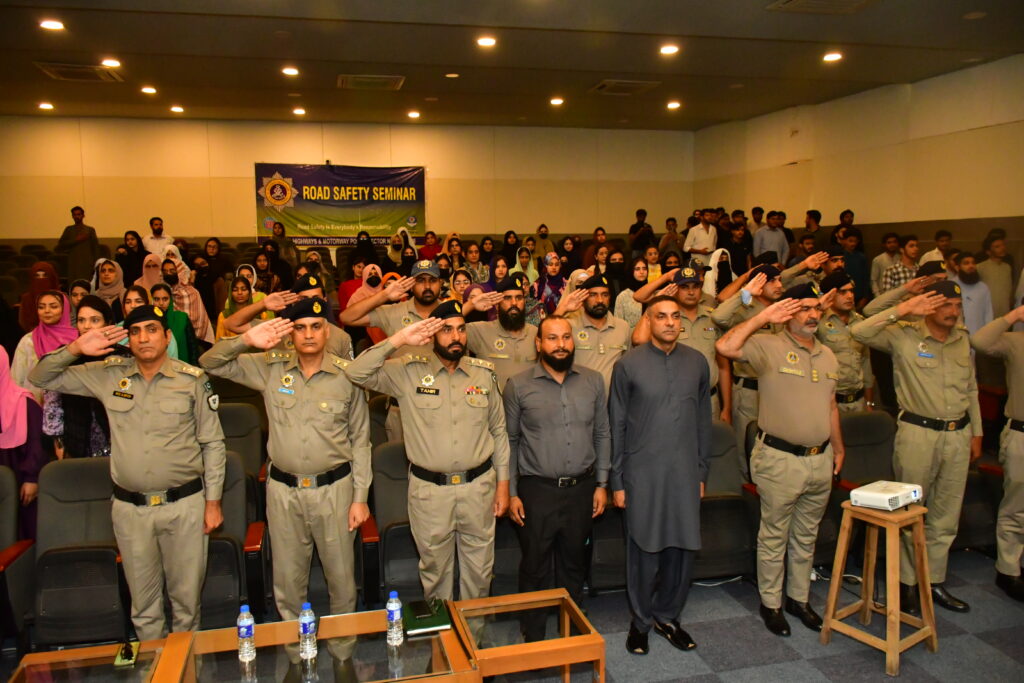
Promoting Traffic Discipline and Road Ethics
Raising Awareness in an Academic Setting
The Road Safety Seminar at UChenab opened with a powerful message: “Every life counts.” In a country where road accidents claim thousands of lives annually, educational institutions have a critical role to play in promoting awareness and initiating behavioral change. Accordingly, The University of Chenab took this responsibility seriously and hosted the event as part of its social and educational mission.
Message of Responsibility from Sector Commander
DSP Ashfaq Ahmed Klair, Sector Commander of NHMP, set the tone with an inspiring address that highlighted accountability, civic duty, and youth responsibility. He praised the university for its dedication to meaningful causes and stressed that students are the key drivers of long-term change in road safety culture.
Expert Sessions on Life-Saving Awareness
The seminar featured various NHMP representatives who shared practical knowledge, case studies, and statistical realities. Each guest speaker tailored their message to emphasize the human cost of carelessness behind the wheel.
Insightful Guidance from Senior Officials
DSP Tahir Hussain educated students on the legal implications of reckless driving. He outlined laws related to underage driving, mobile phone use while driving, and overspeeding.
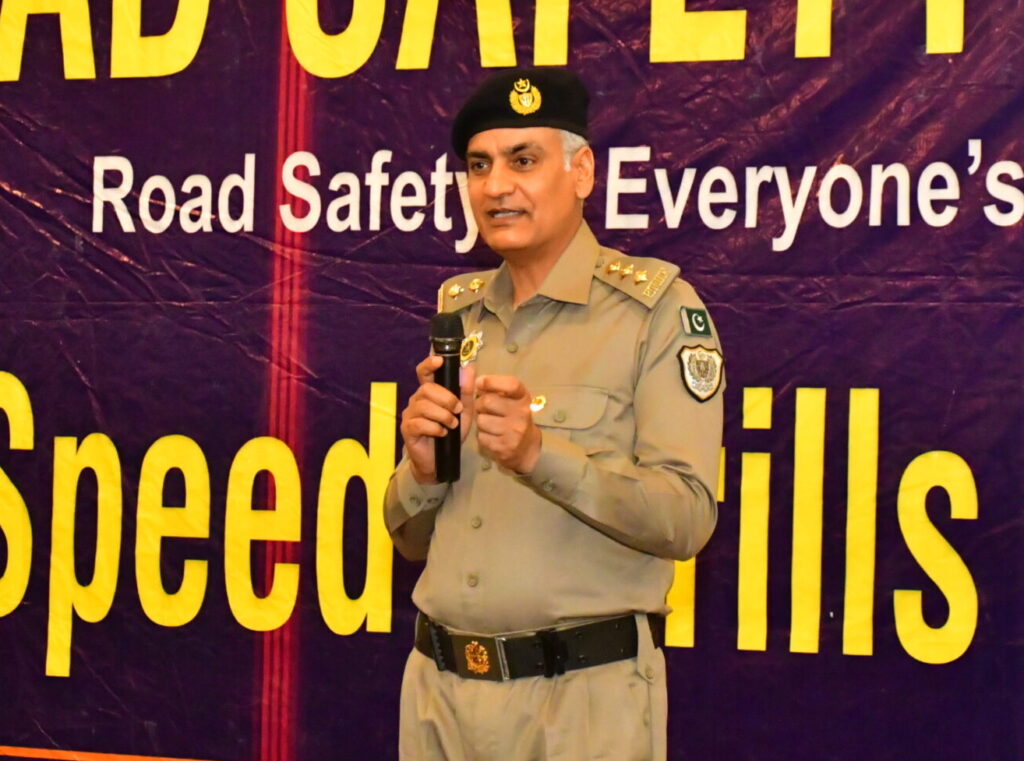

Inspector Imrana Kausar addressed the growing issue of distracted and impaired driving. Her presentation included moving visuals that resonated emotionally with the audience.
Inspector Usman Haider encouraged a mindset of readiness. He highlighted how even small precautions, like wearing seat belts or using indicators, save lives daily.
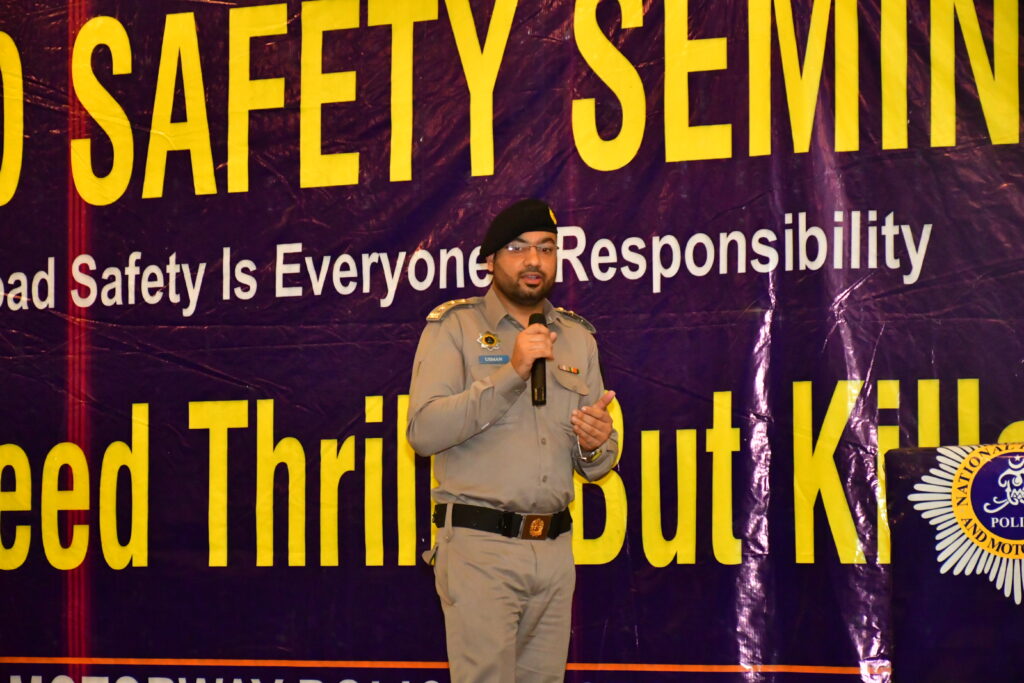
Sub-Inspector Abid Majeed Toor discussed the importance of motorbike safety, helmet usage, and the frequent disregard of traffic rules by young riders.
These real-life experiences and authoritative insights made the Road Safety Seminar at UChenab an impactful session, sparking conversations across campus corridors.
Key Highlights of the Seminar
- Collaborative initiative with National Highway and Motorway Police (NHMP)
- Awareness on legal frameworks, ethical conduct, and road discipline
- Real-life case studies, accident prevention strategies, and interactive dialogue
- Reinforcement of The University of Chenab’s no-smoking and safety policies
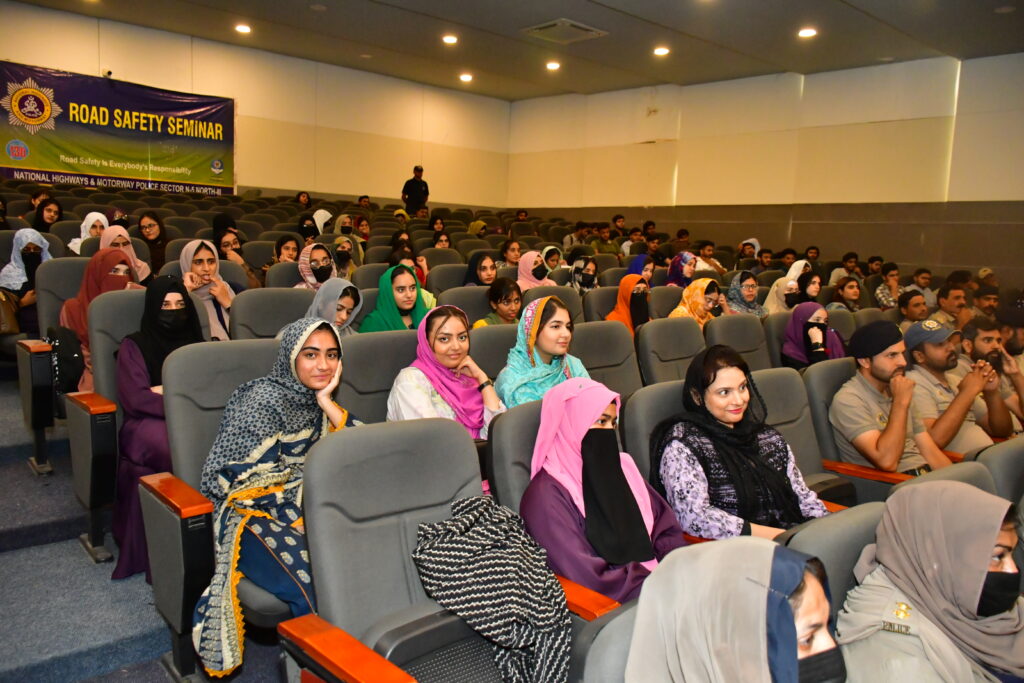
Educating Future Citizens on Law and Responsibility
Instilling Ethics Beyond Traffic Rules
The seminar extended well beyond tips and guidelines. It placed a strong focus on the ethical and legal foundations that support safer societies. Students were reminded that traffic laws are not just regulations—they reflect values such as respect, patience, and empathy.
Key Learnings for Students
Students walked away with several vital messages:
- Obeying signals means respecting life, not just avoiding penalties.
- Speed limits serve as boundaries of protection.
- Road manners reflect personal discipline and civic maturity.
- Breaking laws doesn’t only invite fines; it causes real harm and lasting regret.
Student Engagement and Active Participation
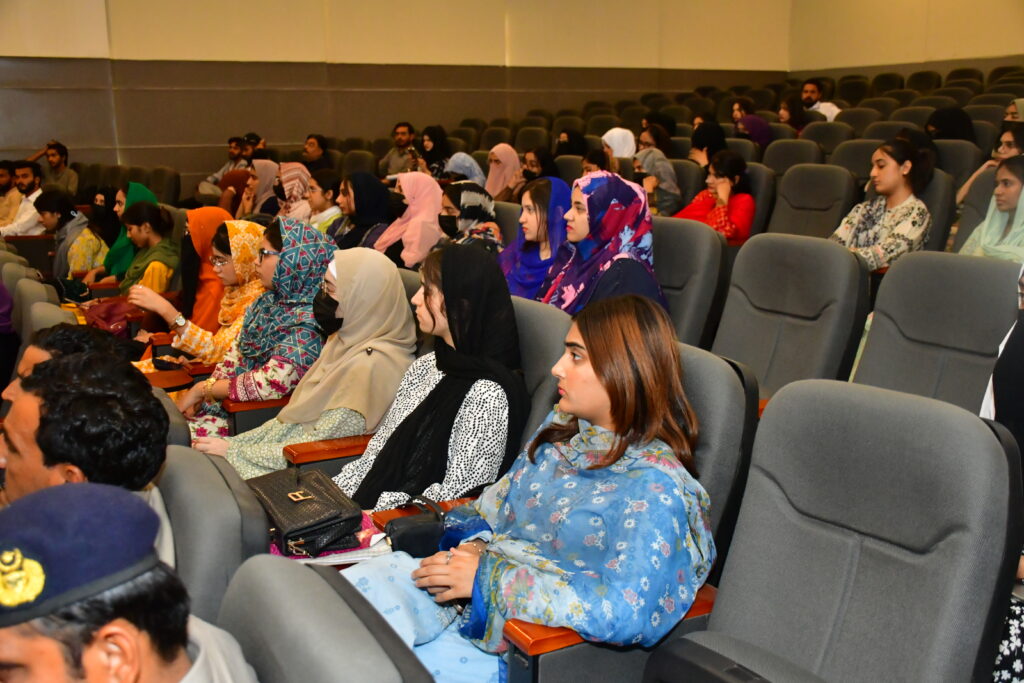
Students from the Department of Law and Criminology displayed immense enthusiasm. Through interactive Q&A sessions and scenario-based discussions, they engaged with speakers on real-world cases and legal loopholes. This intellectual exchange turned the seminar into more than just a lecture—it became a dynamic dialogue.
Some of the most engaging moments of the Road Safety Seminar at UChenab involved students questioning how existing laws could be improved or enforced more strictly, especially regarding underage drivers and license issuance.
Fostering a Culture of Preventive Responsibility
Faculty Reflections on Impact
The core theme of preventive responsibility echoed throughout the seminar. Students were urged to be proactive, not reactive. By avoiding risky behaviors before they escalate, they contribute to a safer community for all. Faculty members expressed pride in the event, noting that it achieved more than academic learning—it provided civic and ethical education.
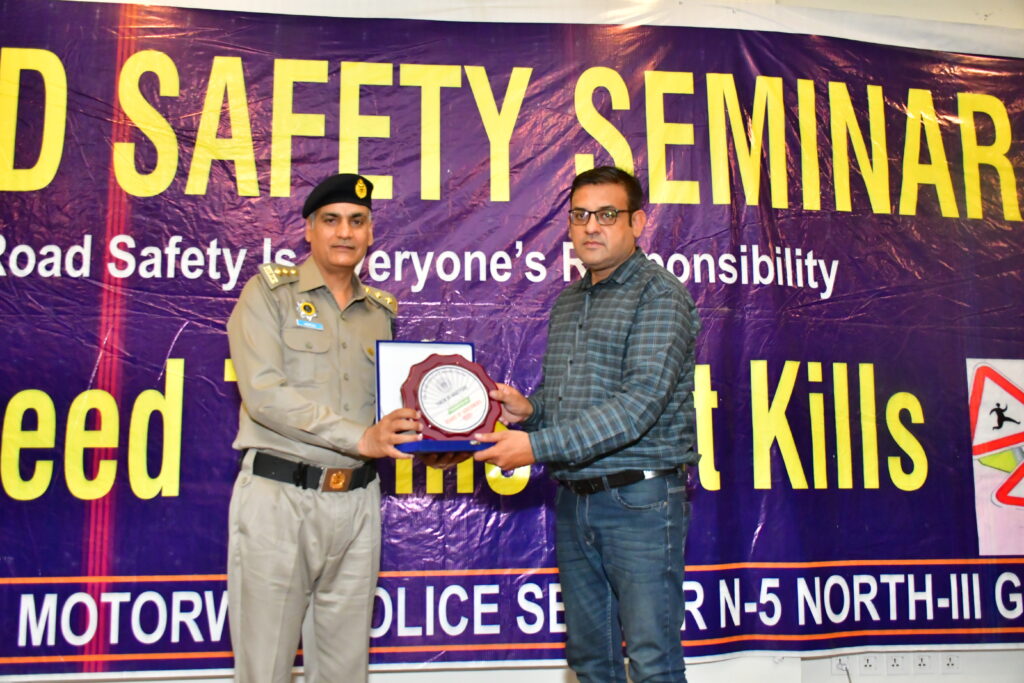
Furthermore, NHMP officials commended The University of Chenab for hosting such an impactful awareness session.
The University of Chenab: A No-Smoking, Safety-Conscious Campus
In line with its strong health and safety standards, The University of Chenab also maintains a strict no-smoking policy across campus. All forms of tobacco consumption are prohibited within university premises. Any student found violating these rules faces disciplinary action including warning notices, parental intimation, and suspension from academic privileges. This campus-wide regulation ensures that students learn in a clean, safe, and distraction-free environment—further extending the core values promoted during the Road Safety Seminar at UChenab.
Institutional Commitment to Social Well-being
A Vision Beyond the Classroom
The success of the Road Safety Seminar at UChenab illustrates the university’s broader vision—preparing students not just for exams, but for life. UChenab continues to organize events that promote community values, legal understanding, and public engagement. By collaborating with NHMP, the university ensures that its students have real exposure to the challenges and responsibilities of modern civic life.
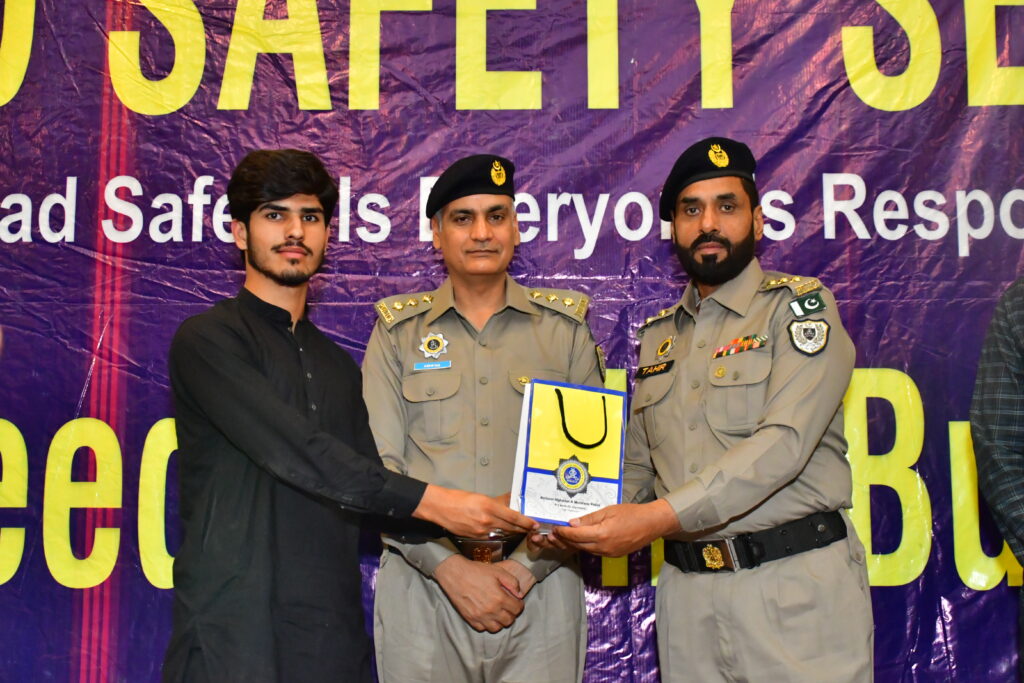
Looking Ahead: Sustaining the Impact
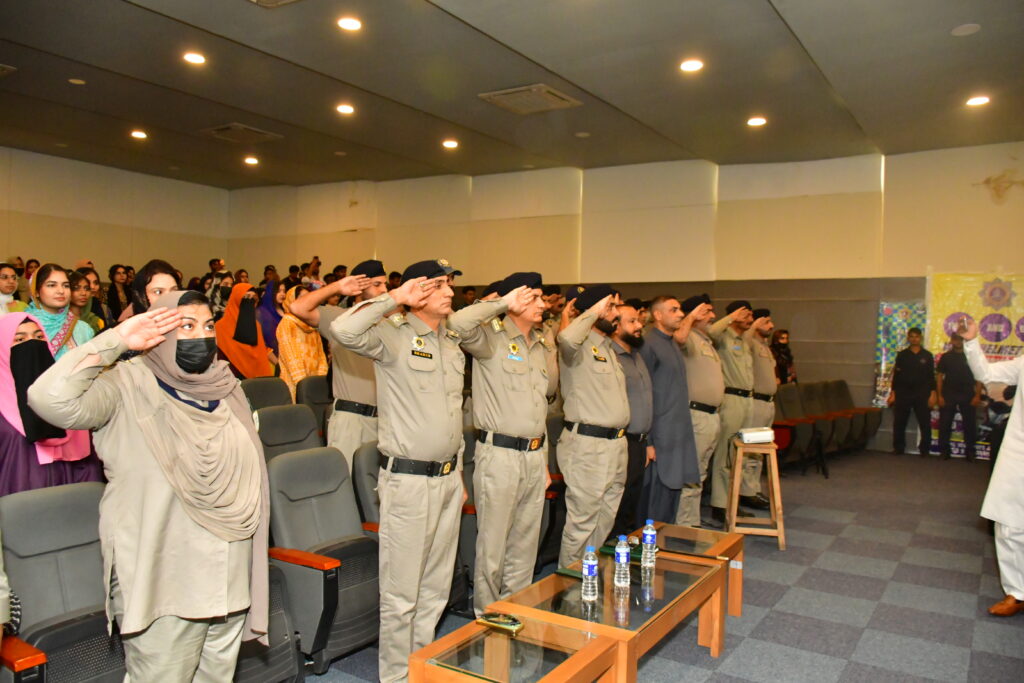
The Road Safety Seminar at UChenab has set the tone for future partnerships and educational campaigns on civic responsibility. With continued focus on awareness, discipline, and preventive education, UChenab aims to empower students not only with knowledge—but with the wisdom to save lives, respect the law, and act responsibly in every sphere of life.

